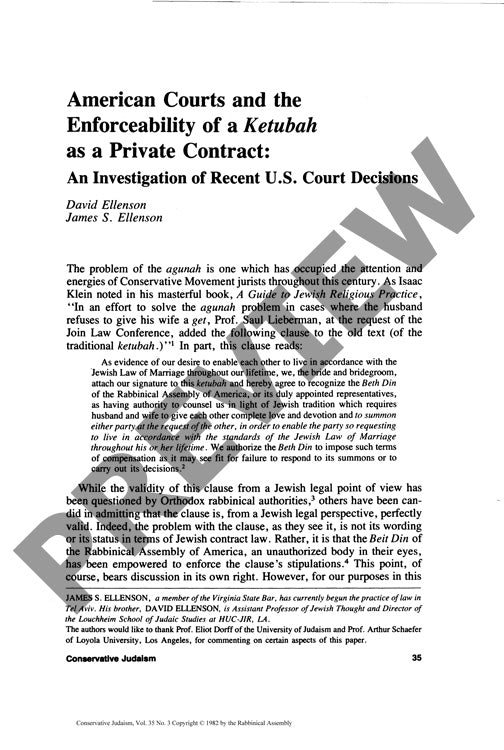American Courts and the Enforceability O
Couldn't load pickup availability
When Jewish husbands refuse to grant religious divorces, can American civil courts enforce traditional marriage contracts to protect wives from becoming "chained women" (agunot)? Analysis of landmark U.S. court decisions from 1957-1979 reveals an evolving judicial willingness to recognize the ketubah—the traditional Jewish marriage contract—as a legally binding document. Through examination of cases involving both traditional ketubot and the Conservative Movement's "Lieberman clause," which explicitly empowers religious courts to enforce divorce proceedings, clear patterns emerge in judicial reasoning. Courts have increasingly distinguished between religious and contractual elements, with Koeppel v. Koeppel (1957) and subsequent rulings demonstrating growing acceptance of specific performance orders for get delivery based on separation agreements. The watershed Stern v. Stern (1979) decision established precedent for enforcing an Orthodox ketubah as a binding antenuptial contract, suggesting even stronger enforceability for Conservative ketubot containing explicit arbitration clauses. While constitutional questions regarding First Amendment separation of church and state remain unresolved, recent judicial precedent points toward treating ketubot as enforceable private contracts—offering a potential civil remedy to the persistent agunah problem.

More Information
-
Physical Description
-
Publication Information
Published 1982
ISBN
-
Publication Credits
David Ellenson

